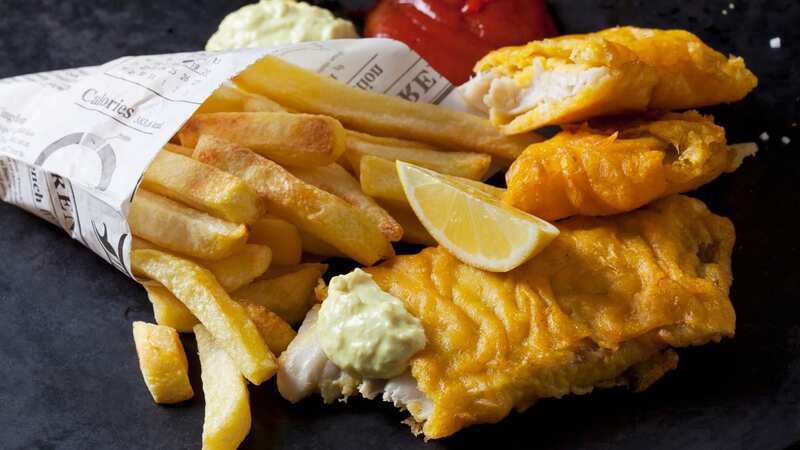UK chippies found to be selling endangered shark to 'unsuspecting' customers

Chippy teas are quintessentially British - but one study could put us off for good.
Turns out, those who get their weekly fix of battered cod, chips, and curry sauce could be getting more than they bargained for. Researchers have analysed 78 fish and chip shops and 39 fishmongers - mostly located in southern England including London, Cornwall, Surrey, Bristol, and Hertfordshire.
Using DNA barcoding, scientists at the University of Exeter found oblivious customers were actually being sold endangered species of shark. Published back in 2019, the shocking study has resulted in calls for an investigation into the sale of prohibited shark products across Europe.
Scientists were horrified to discover that the majority of sampled fish and chip shops were selling spiny dogfish - a species 'endangered' in Europe - under generic names like 'huss, rock salmon, and rock eel'. Researchers also found species including starry smooth-hounds, nursehounds and blue sharks on sale in fishmongers and chip shops.
During the same year, a staggering 80 million sharks were killed - a four million increase since 2015. Around 25 million of sharks killed were 'threatened species'. Just six countries were responsible for half of all killings - with Indonesia representing 19 per cent.
 Teen girl mauled to death by shark in front of her friends in horrendous attack
Teen girl mauled to death by shark in front of her friends in horrendous attack
Want big news with big heart? Get the top headlines sent straight to your inbox with our Daily Newsletter
“It's almost impossible for consumers to know what they are buying,” said first author Catherine Hobbs of the University of Exeter. “People might think they’re getting a sustainably sourced product when they're actually buying a threatened species."
She also warned of potential 'health issues', adding: "Knowing what species you are buying could be important in terms of allergies, toxins, mercury content and the growing concern over microplastics in the marine food chain." Researchers say their findings show the need for 'more information and accurate seafood labelling'.
Read more similar news:
Comments:
comments powered by Disqus

































